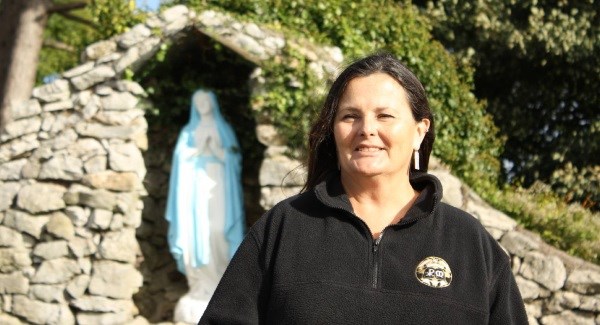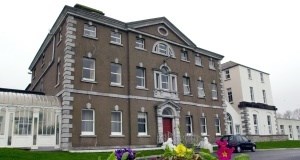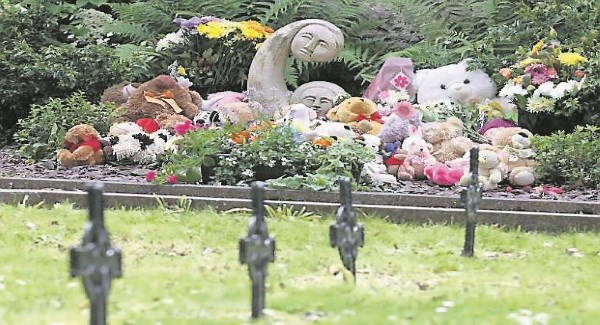Vaccine Trials: Unravelling the Drug Trials Scandal
By Conall O Fatharta
THE current commission of investigation into mother-and-baby homes is the second State inquiry that will attempt to examine the issue of vaccine trials carried out on children in the homes. Further revelations in the Irish Examiner this week showed that the files of vaccine trial victims in Bessborough mother-and-baby home were altered in 2002 — just weeks after the Commission to Inquire into Child Abuse sought discovery of records from the order running the home. The revelation will no doubt be examined as part of the latest inquiry. The history of how and why large-scale vaccine trials were carried out on children in care in Ireland is still emerging, usually through media exposes. The fact vaccine trials were carried out on children in mother-and-baby homes and other institutional settings first hit the headlines in the early 1990s. Questions were raised in the Dail on the subject but it wasn’t until 1997 that then health minister Brian Cowen gave assurances the matter would be examined. In 2000, the Kiely report confirmed three trials had been conducted on behalf of the pharmaceutical company, the Wellcome Foundation. The institutions involved were Wellcome labs in Britain, the Department of Medical Microbiology in UCD, and the Eastern Health Board. The first trial took place between December 1960 and November 1961 in four mother-and-baby homes: St Patrick’s on the Navan Rd in Dublin (14 children); Bessborough in Cork (25 children); Castlepollard in Westmeath (six children); and Dunboyne (nine children). Four children from the Stamullen home in Meath were also used for that trial.
The purpose of the trial was to look at the response the children would have to a 4-in-1 vaccine — diphtheria, whooping cough, tetanus, and polio. The second trial involved 69 children from St Anne’s Industrial School in Booterstown, Dublin. They were administered an intranasal rubella vaccine. A further 53 children from the wider community in Kilcullen, Co Westmeath, were also used in the trial. The first two trials were carried out by Professor Irene Hillary and Professor Patrick Meenan from UCD’s Department of Microbiology, as well as other doctors. The third trial involved 53 children in a number of residential institutions in Dublin including St Patrick’s Home, Madonna House, Bird’s Nest, and Boheenaburna. A total of 65 children living at home in the community in Dublin also received the vaccine. The aim of the third trial was to compare commercially available batches of the 3-in-1 vaccine — Trivax and Trivax D — with that of equivalent vaccines prepared for the trial. There has been no published paper or report of this trial, but the Eastern Health Board was aware of it being conducted. Dr James Kiely’s report concluded that, given the reasons which the vaccines sought to counter, the decision to conduct the trials was “acceptable and reasonable”. However, he said there was a lack of documentation available to clarify whether consent was either sought or obtained from either the parents of the children or the managers of the institutions. An entry in the 1962 British Medical Journal concerning the first trial seems to confirm that parental consent was not sought. “We are indebted to the medical officers in charge of the children’s homes for permission to carry out this investigation on infants under their care,” it states. Responding to the Kiely report in 2000, Prof Hillary said it was her “invariable practice at the time to obtain consent of the competent authority”, be it the mother, manager, or medical officer. No record of written consent has been acknowledged. The religious orders who ran the homes involved in the trials have also denied authorising any clinical trials. Of the victims of the vaccine trials who have located their natural mothers, all mothers said they were not asked for their permission. In 2000, Micheal Martin, the then children’s minister, admitted the Kiely report was “incomplete” and raised “as many questions as it answered”. However, he said the trials appeared to have had no negative medical consequences for any of those involved. Following this, the government opted to extend the terms of reference of the Commission to Inquire into Child Abuse. This was done despite objections that the trials could not adequately be dealt with by an inquiry looking primarily into physical and sexual abuse. The ‘vaccines module’ of Commission to Inquire into Child Abuse began investigating in early 2002. It obtained documentation from GlaxoSmithKline — the successor of Wellcome — and identified the names and addresses of some of those involved in the trials. It was shut down following a 2002 Supreme Court ruling which upheld Prof Meenan’s challenge against a High Court order directing him to give evidence before the inquiry. Revelations in the years that followed showed Wellcome-sponsored trials in Ireland spanned almost half a century and involved dozens of institutions and thousands of children. Despite this, the company itself has only acknowledged four such trials. The report of the Inter-Departmental Group on Mother-and-Baby Homes, published in 2014, still referred only to three vaccine trials. Yet a fourth was admitted by GSK in 2011, and the 1930-35 trials of a Burroughs Wellcome vaccine for diphtheria, carried out on 2,000 children in residential institutions, were uncovered by Michael Dwyer of UCC’s School of History just a month before publication of the report. It also failed to mention the 1965 trial of a 5-in-1 vaccine carried out on Philip Delaney at Bessborough. ‘Pharma giant kept a file on all my activities’ - Conall O Fatharta Mari Steed, who was adopted in the US from Bessborough Mother and Baby Home, only discovered in the late 1990s she was a victim of the 1960/61 vaccine trial, 4-in-1, when she was trying to trace her natural mother. A handwritten note on her medical file released to her by the nuns confirmed she was given three injections for the 4-in-1 vaccine, the third of which was “given by Prof Hillary”. This entry is immediately followed by: “Baby to America.” “I knew from my reading of the materials available on the Child Abuse Commission’s (CICA) website that Dr Irene Hillery was one of the UCD researchers involved in the vaccine trials, so that was a red flag,” she said. After this, Ms Steed submitted a CICA questionnaire in 2001 to see if she could confirm her suspicions. Shortly afterwards, she managed to trace her natural mother Josephine, who confirmed she knew nothing about the vaccine trials and had never given consent for her daughter to be a part of any medical trial. “I asked her if she were aware of any trials, and she confirmed she wasn’t. She just assumed we were all given routine vaccinations and that nothing was out of the norm. She confirmed on multiple occasions that her permission was never sought. I asked if she would be interested in testifying to the CICA and she said she would. We made arrangements to meet with their legal team in October 2002.” “We met barrister [now Judge] Eithne Murphy and a team of solicitors who had gathered records from Bessborough and were meeting with suspected victims of the trials. It was a very relaxed, non-confrontational, meeting and one of the solicitors made plans to take a full deposition from my mother in the comfort of her home in the UK later. I was copied on the letter making those arrangements but, shortly after the letter was issued, the vaccines trials investigation was shut down permanently.”
There it lay until 2011 when Ms Steed made a series of Freedom of Information and Data Protection requests to the HSE (who then held the Bessborough records) and GlaxoSmithKline (GSK). It was at this point she discovered the pharmaceutical giant had kept a substantial file on her — and not all of it related to her medical records. Referred to as “GSK 36” in some material released to her, the records finally confirmed her participation in the trial. However, the company also had a file monitoring media appearances she made talking about the issue. This included press cuttings from a range of newspaper interviews given by Ms Steed — some given nearly 10 years apart. Also included were typed transcripts from a number of different radio interviews. “The file from GSK was slim but contained what was needed to confirm my participation. Oddly, it also included news clippings of my engagement with the media on the topic of the vaccine trials. It felt a bit odd and creepy to know a major pharmaceutical company had been keeping tabs on my activities. But both the HSE and GSK were transparent and forthcoming in their dealings with me,” she said. Ms Steed admitted she was shocked by revelations in the Irish Examiner that vaccine files, including files relating to her mother, were altered. “I can only imagine that mothers’ consent will be the big issue here. As far as I know, I’ve suffered no ill health as a result of what I was given. But for the order or GSK to admit that mothers’ consent was never sought will be huge. It would be in the order’s interest to alter files to make it appear that mothers were not on the premises and unreachable to give consent, or alter dates of vaccines to make it appear they were given after a mother left,” she said.
|
.
Any original material on these pages is copyright © BishopAccountability.org 2004. Reproduce freely with attribution.


